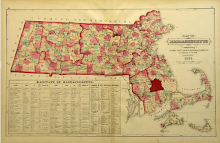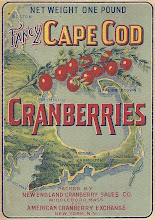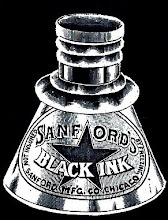This meeting-house was built in 1835, to replace the one which was erected in 1759. Land was not very valuable in that locality, and the committee selected what they called a suitable spot for the new church. They had the foundation laid, the church raised and well under way when someone discovered that they had built it on the boundary line between two towns and two counties. It was said that the line ran between the pulpit and the pews, so that the minister stood in Taunton, Bristol County, and preached to a congregation in Middleboro (now Lakeville), Plymouth County.
The small white meeting-house, with steeple, belfry, and bell, stood alone on the road with the exception of the parsonage and a square old-fashioned two-story house occupied by a genial deacon. On the front of the church were two doors, painted green, opening into the narrow entry, where two doors opposite these led to the audience room. A Bight of winding stairs at each end of the entry ascended to the gallery or "singers' seats", which faced the high, mahogany pulpit, with its red velvet cushion, on which rested the Bible and the red-covered book of hymns and psalms. At the back of the pulpit was a long, hair-cloth covered seat, with a cane-seat chair at each end. There were two chairs of the same kind at the ends of the table on the platform below. The aisles, platform, and stairs were carpeted alike, but the people owned their pews and furnished their own cushions and carpets. Each' pew had a door, which, after all the family had entered, was closed and fastened with a brass button.
In the winter two box stoves stood in the entry, with long pipes which went through holes in the wall and down the length of the auditorium, and into the chimneys at either side of the pulpit. Wood was burned in the stoves, which often smoked. The pipes contained any quantity of soot, and the dampness caused them to leak, sending a dark-colored liquid down on the whitewashed walls and painted pews. At a parish meeting it was voted to get some tin pans and fasten them with wire under the joints in the pipes. My grandfather approved the plan, for he said he didn't like sitting under such "dropping of the sanctuary" as had been falling on him. The stoves and pipes were expected to warm the whole church, but occasionally some old lady would bring a foot-stove, filled with hot coals, or perhaps a hot brick to put under her feet. The women seldom had occasion to unpin their shawls or to loosen their cloaks or their fur tippets, and they usually kept their hands in their big fur muffs all through the service. Some of the elderly people, with poor circulation, would perhaps take a good dose of hot drops before starting for meeting.
They went with the old farm horse and covered wagon, which had no springs (neither wagon nor horse had springs) and was hung on what were called "thorough braces", and how they would rattle over the rough country roads! Those who sat on the front seat would have a buffalo robe or a heavy blanket before them in winter, but the women on the back seat were supposed to keep warm enough with their extra shawls and long, green barege veils.
In the summer the church doors, windows, and blinds were wide open, in order that the sunlight and air might have full play. The quiet stillness of the hour was seldom disturbed by the rumbling of passing carriages, but there was occasionally the stamping of uneasy horses in the adjacent sheds. The singing of the birds, the sound of the cricket, the busy bee, or the katydid, and the distant tinkling of cow-bells helped to divert the young minds and were perhaps as attentively listened to as was the solemn sermon proclaimed from the pulpit in stentorian tones. Everyone went to meeting on Sunday: old men, old women, young men and maidens, and little children, whom their mothers were obliged to take, or stay at home. It was very tiresome for the little ones to sit through a long sermon, not able to touch the floor with their feet, but sometimes they could rest them on a little four-legged wooden cricket, and if they pressed a little heavily on one end, over it would go and disturb the silence of the house. A little girl at one time had become very tired after being in Church for two long services, and near the end of the afternoon meeting she whispered to her mother, "Isn't it most time for him to say, 'Holy Ghost, Amen'?"
Sunday was a long, tiresome day for the children, whose playthings were put away on Saturday night, not to be taken out till Monday morning. Even the accordion, the only musical instrument in many homes, was placed on the upper shelf, for fear it might strike up the familiar strains of "Yankee Doodle" on the Lord'? day, and they must remember the Sabbath Day to keep it holy. Go to Church in the morning, Sunday School from twelve to one, stay through the afternoon service, then go home tired and so hungry! After dinner they could study the next Sunday School lesson and read the old, old stories of Adam and Eve, Cain and Abel, Daniel in the Lions' den, and how
The meeting-house bell was rung at nine o'clock on Sunday morning, and those within hearing distance would set their clocks and watches and feel sure that they had the correct time. The bell was tolled for a death in the parish. When a person was very sick and not expected to live, people who were interested (and nearly everyone was interested) would listen at sunrise and sunset for the bell to toll and would slowly and solemnly count the strokes. At one time, when I was quite young, I spent the night with a cousin who lived near the church in a neighboring town. At the rising of the sun, the bell tolled the age of a very old man who had died during the night. We began to count, and we counted bell after bell until it reached ninety-five, ninety-six, and when it struck ninety- seven my cousin exclaimed, "Why! they are tolling that bell for Methuselah." I must say her remark somewhat marred the solemnity of the occasion.
Funerals were seldom held in the church but rather at the home of the departed and were made just as solemn as possible. I remember one old minister who always opened the service in this way: "We will now commence the service on this solemn occasion by reading the 90th Psalm. 'The days of our years are threescore years and ten; and if by reason of strength they be fourscore years, yet is their strength labour and sorrow, for it is soon cut off, and we By away'." I heard Maud Howe Elliott say not long ago that these words had caused more deaths than all the diseases. Singing at funerals was unheard of at this time, and I remember that later it caused quite a sensation when there was a funeral in town at which two or three members of the church choir sang. Afterwards one woman said to another, "Did you know that they had singing at that funeral?" "Why no," was the reply, "what did they sing?" "Well," she said, "I couldn't understand a word, but they sang to the tune of Boylston'." "Well!" said the other old lady, "I think it's very much out of place to holler and sing at a funeral." I was one of the singers. The Sunday after a funeral, every member of the family who could possibly go to meeting would be found in the pew, though perhaps none of them had been there for three or four years, or since the last funeral. The family would send a note to the parson, requesting the prayers of the Church, which he would announce in this way, supposing it was the wife and mother who had died: "John Smith and family request the prayers of this church that the death of his wife and their mother may be sanctified to them for their spiritual good. Thomas Jones and family join in the request." It is safe to say that the sermon that morning would be shortened on account of the length of the prayer.
The minister was paid $600 a year and had the rent of the house and farm, which was considered equal to $400 more. He raised his own vegetables, cut (or hired cut) his firewood, had quite a little mowing land, and raised hay, corn, etc. enough to keep his horse and cow during the winter. He was expected to hold two services on Sunday and to hold a meeting "at early candlelight" in one of the schoolhouses of the parish, perhaps two or three miles away. Every Thursday evening there was a meeting for exhortation, prayer, and singing, in the schoolhouse near the church, where about fifteen or twenty persons would congregate. The minister would call on different ones for remarks or a "season of prayer", and several hymns would be sung. The deacon, who always sat in the front seat, would look at the hymn which had been read and would name the tune, which would usually be Amsterdam, Coronation, Mear, Boylston, or Marlow. One old man who occasionally went to the Thursday evening meeting would sit until nearly the close of the meeting, then rise, take a long breath, and begin telling the people what great sinners they were. Poor feeble worms of the dust, he called them, unworthy to call on His great and holy name. They must repent, be baptized, and join the Church. Then he would say, "COME, come NOW. It is the accepted time and day of salvation. Life is the time to serve the Lord, the time to insure His great reward, and while the lamp holds out to burn, the vilest sinner may return." We never thought of laughing at this old man-indeed we did not.
What would my father and mother say if they heard me tell this!
Our minister would sometimes exchange with the neighboring pastors, such noted divines as Rev. Mr. Gay of Scotland, Mr. Sanford of Raynham, Mr. Eastman of Berkley, Mr. Duncan of Assonet, and good old Dr. Putnam of Middleboro, who was noted for his long prayers. If the congregation was standing when he closed his eyes in prayer he usually found them sitting when he had finished.
The hour at noon, between the sermons, was devoted to the Sunday School. As soon as the morning service was over, the children would hurry out of their seats for a little recreation before they were called back. Not many minutes would elapse, however, before the dapper little superintendent would go to the front of the pulpit and say, "Sabbath School scholars will please take their places." It was very unusual to see a grown person reciting the Sunday School lesson. The older women would get together and talk over the news of the week. The men would assemble in the horse sheds and talk over their planting, haying, or harvesting, and the Sunday before the March Town Meeting, politics would hold sway. When Sabbath School was over, the children would rush out for a few minutes to eat their light luncheon, a cracker or two, which they carried in their pockets or in little work-bags, and perhaps would go to the parson's house for a refreshing drink of water from the northeast corner of the well. The little girls would often go back to meeting with a few wild flowers, but they would soon tire of holding these in their hands and would throw them into the wooden box of .sand or sawdust which stood in the corner of the pew near the entrance.
The singers sat in the gallery at the back of the auditorium and were partly hidden from view by short red curtains, which were sewed to rings and drawn alone)" on a wire. The hymn or psalm from the old church Psalmody was read by the parson. It might be,
A big bass viol and two violins furnished instrumental music. After the strings and screws were twisted and squeaked to the right pitch, the congregation arose and faced the choir, and the singing commenced. Nearly all who could sing, even a little, sat in the singers' seats.
There were no calendars passed to the people as they entered the church, no army of young men passed plates or long-handled boxes for contributions every Sunday. Occasionally a collection would be taken for some charity. The minister would state the case or the object and would say, "A collection will now be taken. The deacons will please pass their hats. Will Brother Leach pass the hat in the gallery?" I well remember the thud of the big copper cent as it went down into the depths of the deacon's tall hat, which was always the same style, and probably the same hat.
The first pews at each side of the pulpit were called the "free pews". They were seldom occupied, since nearly all had their own seats. In one of the wing pews at the right sat the senior deacon and his estimable wife wearing her black velvet bonnet in winter and one of steel-colored drawn silk, with white strings without spot or blemish, in the summer. Another respected deacon sat about midway of the church on the left-hand side. He and his good wife and their family of little boys, were seldom absent from the church services, although they lived three miles and a half away. The deacon always sat at the head of the pew, by the door, except when the boys got to playing. Then he would move up and very quietly put the roguish boy at the pew door, and order would reign again. I well remember, after the deacon's boys were quite well grown, being at a meeting of the Ladies' Benevolent Society, when one of the old ladies present said to the deacon's wife, "I hear one of your boys is going to college." She answered, "Yes, he is going to Harvard." "To Harvard!" the other exclaimed, "Why, I always thought that was a Unitarian school." The deacon's wife said, "Yes, it is, and Father strongly objected on that account, but he finally reluctantly consented, and George is going to Harvard." It nearly took the old lady's breath away to think that the son of an orthodox deacon should be fitting for Harvard College.
At the left of the pulpit I can see the dignified president of the Ladies' Benevolent Society, with her large feather fan with ivory handles, which she waved back and forth so majestically and moderately as hardly to produce a breath of ail. I remember many other good men and women, whom I like to think of, who were seldom absent from Church on the Sabbath and who have long since gone to their reward. If they should come back to the little white meeting-house, see the changes here, and see the automobiles and electric cars pass the door, I am sure they would think the millennium was at hand.
Source:























+of+Smoky+Mountains+018.jpg)
0 comments:
Post a Comment